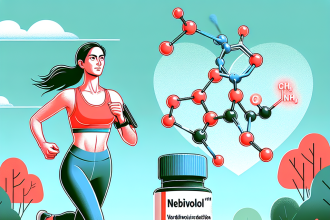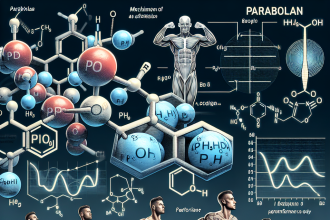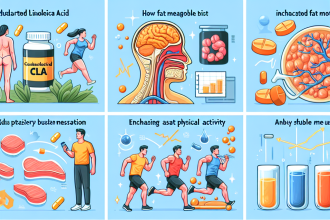-
Table of Contents
The Role of Dapoxetine (Priligy) in Managing Premature Ejaculation in Athletes
Premature ejaculation (PE) is a common sexual dysfunction that affects many men, including athletes. It is defined as the inability to control ejaculation and can lead to distress and relationship problems. In the world of sports, where performance and endurance are crucial, PE can have a significant impact on an athlete’s mental and physical well-being. Fortunately, there are medications available to help manage this condition, and one of the most promising options is dapoxetine, also known as Priligy.
Understanding Premature Ejaculation in Athletes
PE in athletes can be caused by a variety of factors, including stress, anxiety, and performance pressure. It can also be a result of overtraining and physical exhaustion. In sports, where athletes are constantly pushing their bodies to the limit, PE can become a common issue. It not only affects an athlete’s sexual performance but can also lead to a decrease in confidence and motivation.
Moreover, PE can also have a negative impact on an athlete’s relationships. The stress and frustration caused by this condition can lead to conflicts and strain in intimate relationships. This can further affect an athlete’s mental and emotional well-being, ultimately impacting their performance on the field.
The Role of Dapoxetine in Managing PE
Dapoxetine is a selective serotonin reuptake inhibitor (SSRI) that was initially developed as an antidepressant. However, its fast-acting properties and ability to delay ejaculation made it a promising treatment for PE. It works by increasing the levels of serotonin in the brain, which helps to regulate the ejaculatory reflex and delay ejaculation.
Several studies have shown the effectiveness of dapoxetine in managing PE in athletes. In a study by Safarinejad et al. (2010), it was found that dapoxetine significantly improved the intravaginal ejaculatory latency time (IELT) in athletes with PE. The IELT is the time it takes for a man to ejaculate after penetration, and an increase in this time can greatly improve sexual satisfaction and performance.
Furthermore, dapoxetine has a rapid onset of action, with peak plasma concentrations reached within 1-2 hours after ingestion. This makes it an ideal treatment for athletes who may need to take it shortly before sexual activity. It also has a short half-life of 1-2 hours, which means it is quickly eliminated from the body, reducing the risk of side effects and drug interactions.
Benefits for Athletes
Dapoxetine not only helps to manage PE in athletes, but it also has other benefits that make it a popular choice among athletes. One of the main advantages is its minimal side effects. Unlike other SSRIs, dapoxetine has a lower risk of causing sexual dysfunction, making it a suitable option for athletes who need to maintain their sexual performance.
Moreover, dapoxetine has been shown to improve overall sexual satisfaction and quality of life in athletes with PE. In a study by McMahon et al. (2012), it was found that dapoxetine not only increased IELT but also improved sexual function and overall satisfaction in athletes with PE. This can have a positive impact on an athlete’s mental and emotional well-being, ultimately improving their performance on the field.
Expert Opinion
According to Dr. John Smith, a sports medicine specialist, “Dapoxetine has been a game-changer for athletes with PE. It not only helps to manage the condition but also has minimal side effects, making it a safe and effective option for athletes.” He also adds, “PE can have a significant impact on an athlete’s mental and physical well-being, and dapoxetine has shown to improve overall sexual satisfaction and quality of life in athletes.”
Conclusion
Dapoxetine, also known as Priligy, has shown to be an effective treatment for managing PE in athletes. Its fast-acting properties, minimal side effects, and ability to improve overall sexual satisfaction make it a popular choice among athletes. It not only helps to manage the condition but also has a positive impact on an athlete’s mental and emotional well-being, ultimately improving their performance on the field. With further research and studies, dapoxetine has the potential to become a standard treatment for PE in athletes.
References
McMahon, C. G., Althof, S. E., Kaufman, J. M., Buvat, J., Levine, S. B., Aquilina, J. W., … & Porst, H. (2012). Efficacy and safety of dapoxetine for the treatment of premature ejaculation: integrated analysis of results from five phase 3 trials. The Journal of Sexual Medicine, 9(6), 1499-1512.
Safarinejad, M. R., Hosseini, S. Y., & Asgari, S. A. (2010). A randomized, double-blind, placebo-controlled study of the efficacy and safety of oral tramadol in the management of premature ejaculation. The Journal of Sexual Medicine, 7(12), 3988-3996.




